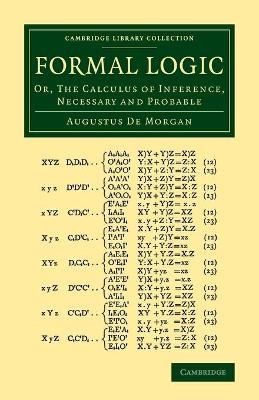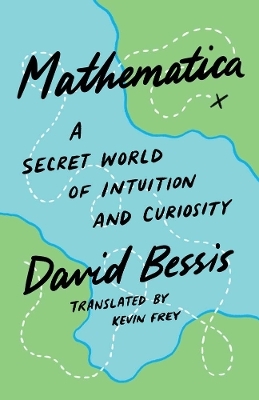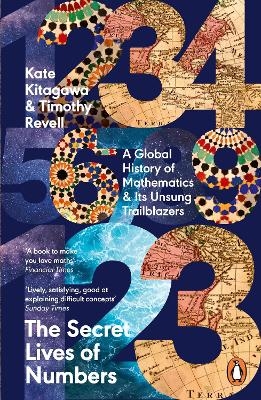
Formal Logic
Or, The Calculus of Inference, Necessary and Probable
Seiten
2014
Cambridge University Press (Verlag)
978-1-108-07078-2 (ISBN)
Cambridge University Press (Verlag)
978-1-108-07078-2 (ISBN)
One of the ablest British mathematicians of his age, Augustus De Morgan (1806–71) played an important role in overturning assumptions concerning the rules of logic and inference with the publication of this book in 1847. It treats logic as a branch of mathematics, more specifically as algebra.
From the end of antiquity to the middle of the nineteenth century it was generally believed that Aristotle had said all that there was to say concerning the rules of logic and inference. One of the ablest British mathematicians of his age, Augustus De Morgan (1806–71) played an important role in overturning that assumption with the publication of this book in 1847. He attempts to do several things with what we now see as varying degrees of success. The first is to treat logic as a branch of mathematics, more specifically as algebra. Here his contributions include his laws of complementation and the notion of a universe set. De Morgan also tries to tie together formal and probabilistic inference. Although he is never less than acute, the major advances in probability and statistics at the beginning of the twentieth century make this part of the book rather less prophetic.
From the end of antiquity to the middle of the nineteenth century it was generally believed that Aristotle had said all that there was to say concerning the rules of logic and inference. One of the ablest British mathematicians of his age, Augustus De Morgan (1806–71) played an important role in overturning that assumption with the publication of this book in 1847. He attempts to do several things with what we now see as varying degrees of success. The first is to treat logic as a branch of mathematics, more specifically as algebra. Here his contributions include his laws of complementation and the notion of a universe set. De Morgan also tries to tie together formal and probabilistic inference. Although he is never less than acute, the major advances in probability and statistics at the beginning of the twentieth century make this part of the book rather less prophetic.
Preface; 1. First notions; 2. On objects, ideas, and names; 3. On the abstract form of the proposition; 4. On propositions; 5. On the syllogism; 6. On the syllogism (cont.); 7. On the Aristotelian syllogism; 8. On the numerically definite syllogism; 9. On probability; 10. On probable inference; 11. On induction; 12. On old logical terms; 13. On fallacies; 14. On the verbal description of the syllogism; Appendices.
| Erscheint lt. Verlag | 21.8.2014 |
|---|---|
| Reihe/Serie | Cambridge Library Collection - Mathematics |
| Verlagsort | Cambridge |
| Sprache | englisch |
| Maße | 140 x 216 mm |
| Gewicht | 460 g |
| Themenwelt | Mathematik / Informatik ► Mathematik ► Geschichte der Mathematik |
| ISBN-10 | 1-108-07078-7 / 1108070787 |
| ISBN-13 | 978-1-108-07078-2 / 9781108070782 |
| Zustand | Neuware |
| Haben Sie eine Frage zum Produkt? |
Mehr entdecken
aus dem Bereich
aus dem Bereich
a secret world of intuition and curiosity
Buch | Hardcover (2024)
Yale University Press (Verlag)
CHF 45,80
a global history of Mathematics & its Unsung Trailblazers
Buch | Softcover (2024)
Penguin Books Ltd (Verlag)
CHF 22,65
Das Jahrhundert, in dem die Mathematik sich neu erfand. 1870-1970
Buch | Hardcover (2022)
Heyne (Verlag)
CHF 30,80


